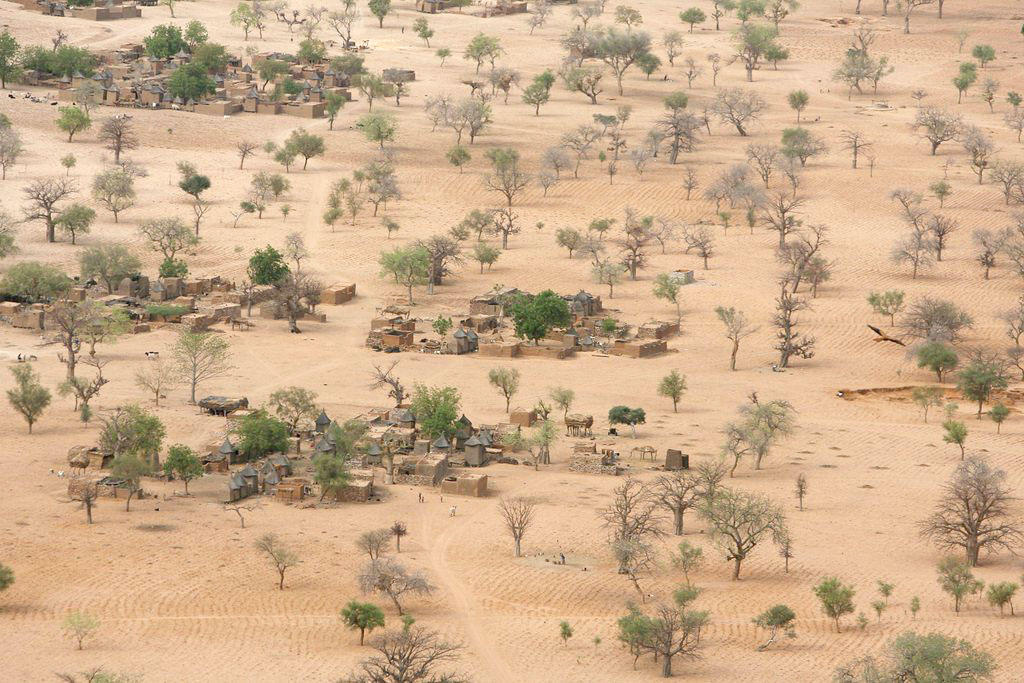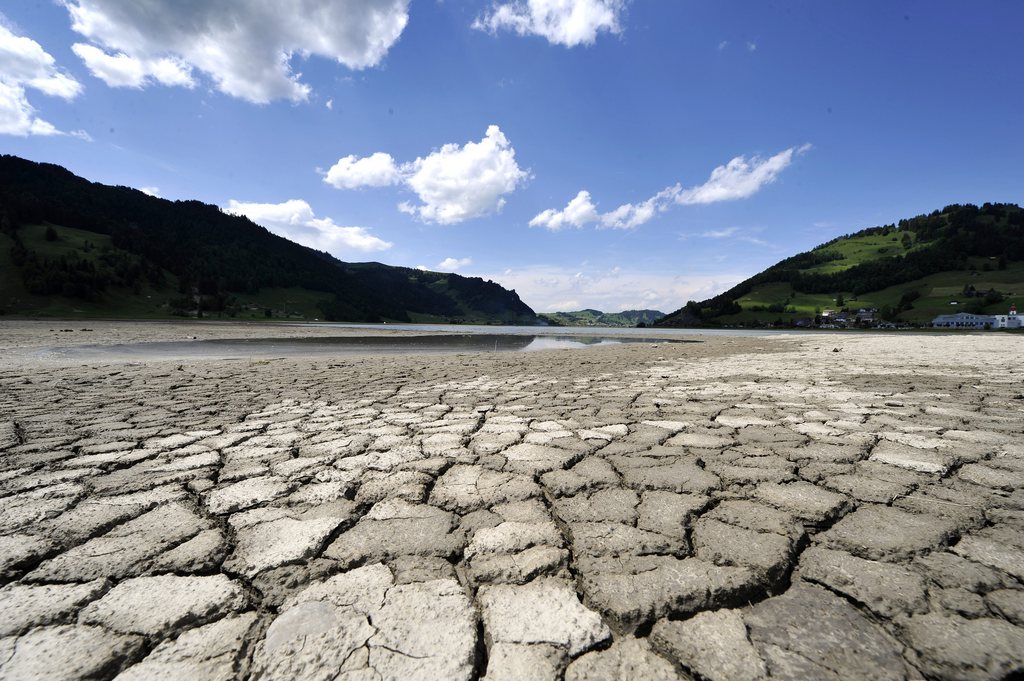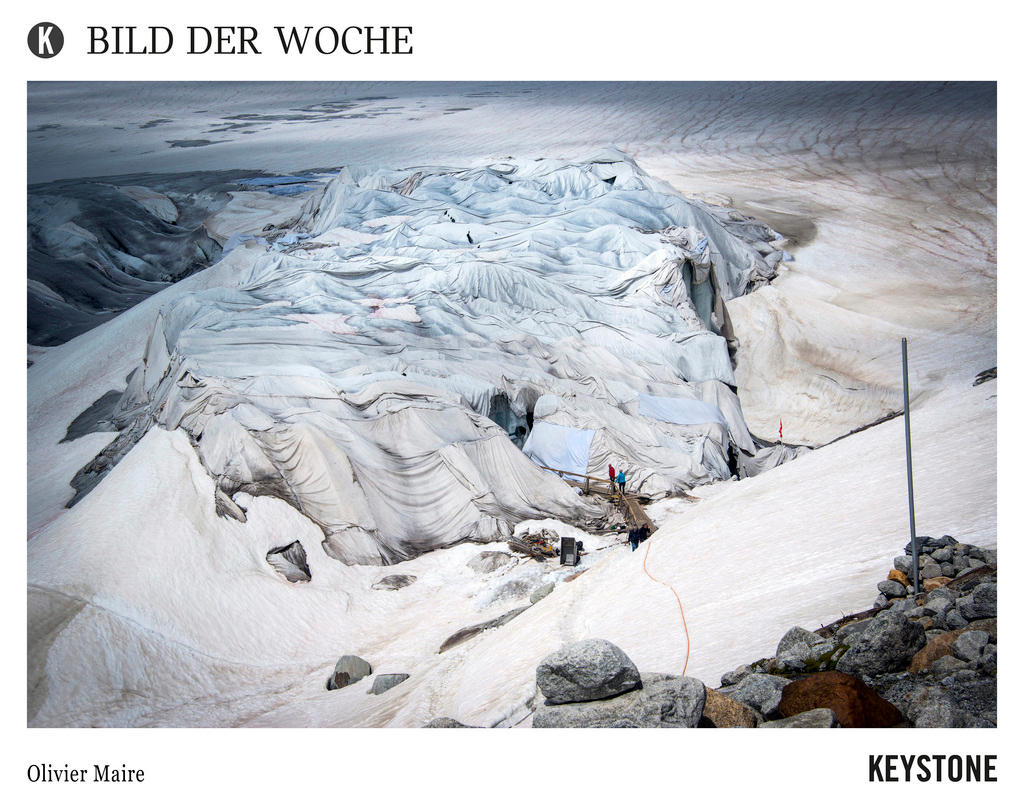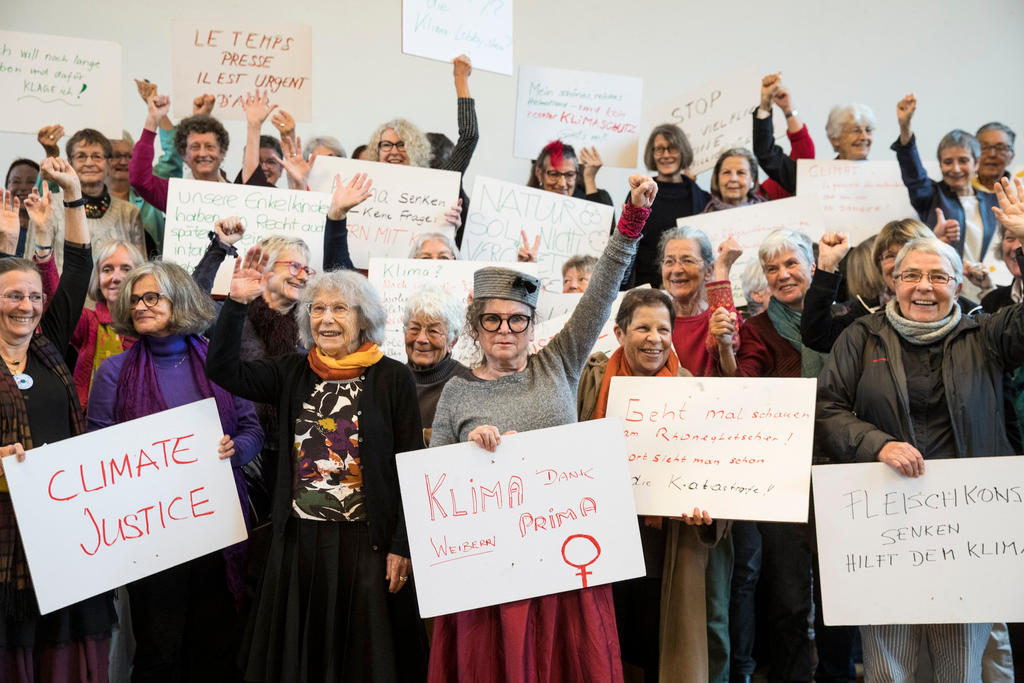Marrakech: devil lies in detail for Swiss

Swiss negotiators in Marrakech will strive to reach agreement on “robust and efficient” regulations for the Paris accord, the global treaty to combat climate change. But non-governmental organisations say more funding is needed for poor countries to fight global warming.
The Paris Accord officially came into force on November 4 after it won the formal support of 55 nations representing at least 55% of greenhouse gas emissions. The deal, reached in the French capital one year ago, aims to slash greenhouse gas emissions by shifting away from fossil fuels to limit global warming to “well below” two degrees Celsius (3.6 Fahrenheit) compared to pre-industrial times.
That is the good news. The bad news was the announcement from the Geneva-based World Meteorological OrganizationExternal link that carbon dioxide (CO2) in the atmosphere worldwide last year surpassed the crucial threshold of 400 parts per million (ppm).
Therefore there is a sense of urgency in agreeing the modalities of the Paris accord as soon as possible. “Paris wasn’t the end, but the beginning,” explained Franz Perrez, who will head the Swiss delegation at the ten-day meeting in Marrakech.
“The accord contains numerous elements and principles, for example the binding character of commitments to reduce emissions. We must now decide how to implement them.”
Swiss priorities
At the climate conference this week in MarrakechExternal link, several questions need answering: How should these objectives to reduce emissions be formulated? Who will verify the commitments made by individual countries? How will a world CO2 market be structured? Where will the money that is needed to combat climate change in the poorest countries come from?
Switzerland’s priority, according to Perrez, is to agree clear and efficient rules. “Among the most important aspects is the [degree of ] transparency with which nations will declare their national reduction targets. These targets should be comprehensive, quantifiable and unconditional. We think that every country should act, at least in part, on its own here.”
So-called New Market MechanismsExternal link (NMM) are also important for Switzerland. These allow for emission reductions on a global scale, through emissions trading, for example. “It will be fundamental to ensure that a reduction isn’t counted twice, in both the beneficiary and investing nations,” the chief Swiss negotiator added.
The $100 billion roadmap
Industrialised countries will also be expected to present their pledges to reach a $100 billion (CHF97 billion) target in climate financing for developing nations. This “roadmap” was agreed in Paris to show poorer states that there was support for their work in fighting climate change. The money, from both the public and private sectors, should be made available by 2020.
According to the Organisation for Economic Co-operation and Development (OECD), $67 billion has already been pledged. Perrez said Switzerland would insist that private financial resources are mobilised as well.
However, he admitted that the beneficiary states were not very enthusiastic about the roadmap since it doesn’t include intermediate, quantifiable targets. Perrez said it would be difficult to set these kind of goals due to various unpredictable factors, such as economic downturns and currency fluctuations.

More
Climate facts and figures
Climate financing
From its standpoint, the Swiss Alliance of Development Organisations (Alliance SudExternal link) said that Switzerland was not doing enough for developing nations. “Climate financing is one of the biggest gaps,” the group’s climate expert, Jürg Staudenmann, told swissinfo.ch.
The roadmap funds are to pay for efforts to reduce emissions, but Staudenmann said that very little money was earmarked for climate change adaptation in developing countries.
He argued that when it came to constructing dams and embankments to protect against rising water levels, improving access to drinking water and addressing the question of migration, it was impossible to interest private investors, since they cannot expect any financial returns. He believes therefore that Switzerland should do what it can to mobilise public sector funds. “There are many ways of financing, for example through a tax on air traffic or a global carbon tax.”
It was agreed in Paris that developing nations still had to do their part to combat climate change. “But without assistance, they won’t be able to do it. Therefore it’s essential that the financial source is clearly defined, otherwise the implementation of the Paris Accord will be delayed for who knows how long,” Staudenmann fears.
Do you think industrialised nations are doing enough to help the world’s poorest countries combat climate change?
Climate change and Switzerland
Switzerland is responsible for about 0.1% of global greenhouse gas emissions. By 2030, the nation’s goal is to reduce its emissions by at least 50% compared to 1990 levels. By 2050 the target is a reduction between 70 and 85%.
The Swiss government says the reductions should mostly take place within Switzerland. Among the instruments at its disposal is a carbon tax on fossil fuels, an emissions trading scheme and a programme to renovate buildings so they are more energy efficient.
The targets must still be debated in parliament, most likely in 2017.
Adapted from Italian by Dale Bechtel

In compliance with the JTI standards
More: SWI swissinfo.ch certified by the Journalism Trust Initiative




You can find an overview of ongoing debates with our journalists here. Please join us!
If you want to start a conversation about a topic raised in this article or want to report factual errors, email us at english@swissinfo.ch.